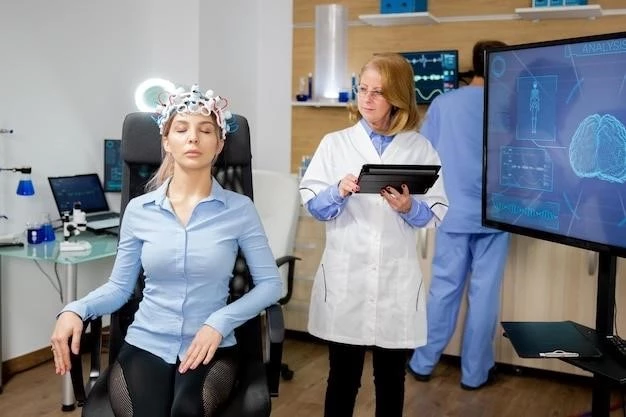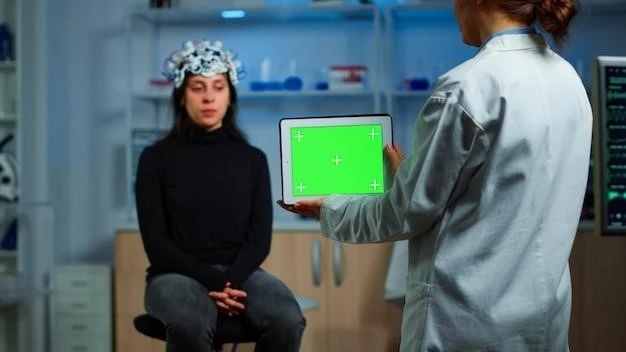Disease ⎼ Digitorenocerebral Syndrome
Digitorenocerebral syndrome is a rare genetic disorder characterized by mutations in a specific gene. It affects the brain, kidneys, limbs, causing intellectual disabilities, developmental delays, syndactyly, polydactyly. Individuals may experience seizures, growth abnormalities. Genetic testing is crucial for diagnosis.
Introduction to Digitorenocerebral Syndrome
Digitorenocerebral syndrome is a rare genetic disorder caused by mutations in the gene. This condition affects various parts of the body, including the brain, kidneys, and limbs. Individuals with Digitorenocerebral syndrome often present with intellectual disabilities, developmental delays, syndactyly (fusion of digits), and polydactyly (extra fingers or toes). The syndrome is also associated with seizures and growth abnormalities.
This syndrome’s genetic etiology underscores the importance of genetic testing for accurate diagnosis. Understanding the underlying gene mutations can assist in treatment planning and management. Despite its rarity, raising awareness about Digitorenocerebral syndrome is crucial for early detection and intervention.
Symptoms and Effects on the Body
Digitorenocerebral syndrome manifests with a spectrum of symptoms that impact various parts of the body. Individuals affected by this genetic disorder may experience intellectual disabilities, developmental delays, and abnormalities in brain development. Limb anomalies such as syndactyly and polydactyly are common features of the syndrome.
Moreover, Digitorenocerebral syndrome can affect the kidneys, leading to renal impairments. Neurological symptoms such as seizures are reported in some cases, highlighting the syndrome’s impact on the central nervous system. Growth abnormalities, including both underdevelopment and overgrowth, are frequently observed in individuals with this syndrome.
Understanding the extensive range of symptoms and effects associated with Digitorenocerebral syndrome is crucial for healthcare providers in providing appropriate care and support to affected individuals and their families. Management strategies can be tailored based on the specific manifestations and needs of each individual to optimize their quality of life.
Neurological Impairments
Neurological impairments are a significant aspect of Digitorenocerebral syndrome, impacting individuals with this condition. The genetic mutations that underlie the syndrome can lead to various neurological issues, such as intellectual disabilities, developmental delays, and seizures.
Individuals with Digitorenocerebral syndrome may exhibit challenges in cognitive function, motor skills, and overall neurological development. The brain abnormalities associated with the syndrome can result in a range of impairments, affecting daily activities and quality of life.
Managing the neurological impairments in individuals with Digitorenocerebral syndrome requires a multidisciplinary approach involving neurologists, geneticists, and other healthcare professionals. Tailored interventions, therapies, and support can help address the specific needs stemming from the neurological aspects of this complex genetic disorder.

Seizures and Growth Abnormalities
Seizures and growth abnormalities are significant features of Digitorenocerebral syndrome, impacting individuals with this rare genetic disorder. Seizures, resulting from the neurological implications of the syndrome, can present challenges in managing the condition and affect the individual’s quality of life.
Furthermore, individuals with Digitorenocerebral syndrome may experience growth abnormalities characterized by variations in height, weight, or overall growth patterns. These abnormalities can pose additional health concerns and require close monitoring to address potential complications.
Understanding the relationship between seizures, growth abnormalities, and other aspects of Digitorenocerebral syndrome is essential for healthcare providers to develop comprehensive care plans that address the unique needs of affected individuals. By addressing these specific challenges, healthcare teams can strive to improve outcomes and enhance the overall well-being of individuals with this complex genetic disorder.
Diagnosis and Genetic Testing
Diagnosing Digitorenocerebral syndrome requires a comprehensive evaluation that includes genetic testing to identify specific mutations associated with the syndrome. Genetic testing plays a crucial role in confirming the diagnosis and understanding the underlying genetic factors contributing to the condition.
Healthcare providers may utilize a combination of clinical assessments, imaging studies, and genetic testing to diagnose Digitorenocerebral syndrome accurately. By analyzing the individual’s genetic makeup, healthcare teams can pinpoint the gene mutations responsible for the syndrome and tailor treatment strategies accordingly.
Genetic testing not only aids in confirming the diagnosis but also provides valuable information for genetic counseling, family planning, and prognosis. Understanding the genetic basis of Digitorenocerebral syndrome empowers healthcare providers to offer personalized care and support to individuals and families affected by this rare genetic disorder.
Treatment and Management
The treatment and management of Digitorenocerebral syndrome focus on addressing the specific symptoms and complications associated with this rare genetic disorder. A multidisciplinary approach involving various healthcare specialists may be necessary to provide comprehensive care.
Interventions for individuals with Digitorenocerebral syndrome may include therapies to address developmental delays, intellectual disabilities, and neurological impairments. Seizures can be managed with appropriate medications and monitoring, while growth abnormalities may require close supervision and targeted interventions.
Supportive therapies such as physical therapy, occupational therapy, and speech therapy can play a crucial role in improving the individual’s quality of life and functional abilities. Regular medical follow-ups and screenings are essential to monitor the progression of the syndrome and address any emerging concerns promptly.
By developing personalized treatment plans tailored to the specific needs of each individual with Digitorenocerebral syndrome, healthcare providers can help optimize outcomes and enhance the overall well-being of affected individuals. Research into novel treatment approaches continues to advance our understanding of this complex genetic disorder.
Research and Future Prospects
Ongoing research into Digitorenocerebral syndrome aims to deepen our understanding of the genetic mechanisms and underlying pathways involved in the development of this rare genetic disorder. By elucidating the molecular basis of the syndrome, researchers seek to uncover potential therapeutic targets and interventions.
Advancements in genetic technologies have facilitated the identification of specific gene mutations linked to Digitorenocerebral syndrome, paving the way for targeted therapies and personalized medicine approaches. Collaborative efforts among researchers, clinicians, and advocacy groups are essential in driving forward research initiatives and expanding treatment options.
Future prospects for Digitorenocerebral syndrome include the exploration of novel treatment modalities, precision medicine approaches, and gene-based therapies. The ultimate goal is to improve outcomes, enhance quality of life, and offer hope to individuals and families affected by this complex genetic disorder.
By continuing to support research efforts, raise awareness, and foster collaboration within the scientific community, we can advance our knowledge of Digitorenocerebral syndrome and work towards innovative solutions that benefit those living with this rare genetic condition.
Support Systems and Resources
Individuals and families affected by Digitorenocerebral syndrome can benefit from access to a range of support systems and resources designed to assist them in managing the challenges associated with this rare genetic disorder. Support groups, online communities, and advocacy organizations offer valuable emotional support, information sharing, and connection with others facing similar experiences.
Healthcare providers, including genetic counselors, social workers, and specialized care teams, play a crucial role in guiding individuals through the diagnosis, treatment, and management of Digitorenocerebral syndrome. These professionals can provide essential information, support services, and referrals to specialized programs tailored to the needs of those affected by the syndrome.
Educational resources, workshops, and informational materials can empower individuals and families to better understand Digitorenocerebral syndrome, navigate healthcare systems, and access available services. By being informed and connected to supportive networks, individuals with Digitorenocerebral syndrome can enhance their quality of life and overall well-being.
Building a strong support network and utilizing available resources can contribute to a more positive outlook and improved outcomes for individuals living with Digitorenocerebral syndrome. By leveraging these support systems and resources, individuals and families can navigate the complexities of the syndrome with greater resilience and empowerment.
Conclusion
In conclusion, Digitorenocerebral syndrome is a rare genetic disorder characterized by mutations affecting the brain, kidneys, limbs, and overall development of affected individuals. The syndrome presents with a unique combination of symptoms, including intellectual disabilities, developmental delays, syndactyly, polydactyly, seizures, and growth abnormalities.
Diagnosis of Digitorenocerebral syndrome relies on genetic testing to identify specific gene mutations associated with the condition accurately. Treatment and management strategies aim to address the diverse range of symptoms and complications, often requiring a multidisciplinary approach and personalized interventions.
Research initiatives continue to advance our understanding of Digitorenocerebral syndrome, offering promising prospects for novel therapies and precision medicine approaches. Support systems and resources play a vital role in providing assistance, information, and emotional support to individuals and families navigating the challenges posed by this complex genetic disorder.
By fostering collaborative efforts among researchers, healthcare providers, advocacy groups, and affected individuals, we can work towards improving outcomes, enhancing quality of life, and offering hope for the future of those living with Digitorenocerebral syndrome. Increased awareness, support, and research are key to driving progress in the field and making a positive impact on the lives of those affected by this rare genetic condition.
